#Bohman
Explore tagged Tumblr posts
Text
Bohman is a good character you guys are just mean

Yu-Gi-Oh Vrains is one of the better received spinoff series. Though, like any of the Yu-Gi-Oh spinoffs it's not without its faults. Usually I'm the first to admit the flaws in my favorite silly card game shows, even while I myself take them way too seriously. However, there's one common criticism I can't bring myself to agree with.
That is calling the main antagonist of the second season Bohman "boring" or "badly written." I've noticed fans unfairly blame Bohman for season 2's writing flaws.
Forget for a moment about whether or not you find Bohman's stoic attitude interesting or likable. If you look at characters not as people, but as narrative tools the author uses to say something about the story's themes then Bohman has a lot to say about VRAINS cyberpunk themes.
Cyberpunk is a subgenre of science fiction that tends to focus on "low-life and high-tech." As I like to put it, in Cyberpunk settings technology has greatly advanced while society itself lags behind unable to keep pace with the rate at which technology changes. Yu Gi Oh 5Ds is an example of a cyberpunk dystopia because despite having what is essentially access to free energy, and living in a society with highly advanced technology resources are hoarded by the wealthy and an unnecessary social class divide still exists.
In other words technology changes quickly while humans tend to remain the same.
The central conflict for all three seasons of Vrains are actually based on this very cyberpunk notion. That technology changes, updates, and becomes obsolete at a rate too fast for humans to ever adapt to. For Vrains, the conflict is whether humans can ever coexist with an artificial intelligence they created that can grow and change faster than they can keep up with.
This is well-tread ground in science fiction. The idea itself most likely emerged from I,robot. A science fiction book that is a collection of dirty stories that details a fictional history showing robots growing slowly advanced over time. The framing device is that a journalist is interviewing a "robopsychologist" an expert in the field of analyzing how robots think in their positronic brains.
One of the major themes of the book is despite the fact that robots are 1 - intelligent and 2 - designed by humans, they don't think the same way humans do. Hence why a robopsychologist is needed in the first place. One of the short stories is the first appearance of Asimov's three laws of robotics.
The First Law: A robot may not injure a human being or, through inaction, allow a human being to come to harm.
The Second Law: A robot must obey the orders given it by human beings except where such orders would conflict with the First Law.
The Third Law: A robot must protect its own existence as long as such protection does not conflict with the First or Second Law.
This is just one example. A robot no matter how intelligent it is will be required to think in terms of these three laws, because robots aren't biological, they're programmed to think in pre-determined patterns.
Of course clever enough artificial intelligences are capable of finding loopholes that get around the three laws, but even then they're still forced to think of every action in terms of the three laws.
Robots and humans are both intelligent, but if AI ever becomes self aware it will 1) be able to process information better than any other human can and 2) think differently from humans on a fundamental.
Vrains is themed more than anything else around "robo psychology" or trying to understand the ways in how the Ignis think and how that's different from it's human characters.
Robo-Psychology is actually a common reocurring theme. "DO ANDROIDS DREAM OF ELECTRIC SHEEP?" fearless artificial humans known as Replicants who need an empathy test known as the voight kampff test to distinguish them from human beings.
There are other Cyberpunk elements in Vrains. There's a big virtual world where everyone can appear as custom designed avatars, that's taken from Snow Crash or of the most famous and genre defining cyberpunk novels. There's a big rich mega conglomerate that's being opposed by a group of hackers.
However, the central question is whether humans and AI can coexist in spite of the fact that AI are much smarter and evolve faster than us.
Revolver's father believes the Ignis must be destroyed in order to avoid a possible technological singularity in the future.
The technological singularity—or simply the singularity[1]—is a future point in time at which technological growth becomes uncontrollable. According to the most popular version of the singularity hypothesis an upgradable artificial intelligence will eventually enter a positive feedback loop of self-improvement cycles, each new and more intelligent generation appearing more and more rapidly, causing a rapid increase ("explosion") in intelligence that surpasses anything humans can make.
Basically your computer is smarter than you, but your computer isn't self aware. It needs you to tell it what to do. Artificial intelligence already exists but it's programmed by humans, it doesn't program itself. The technological singularity proposes that eventually a self aware ai, will be able to program itself and improve upon it's own programming- therefore ridding itself of the need of it's human programmers.
This is what leads us to Bohman, an AI designed by another AI.
THE THIRD LAW
Before digging into Bohman let's take a minute to discuss his creator. Lightning was one of the six Ignis, created by Dr. Kogami through the Hanoi Project.
The Hanoi project involved forcing six children to duel in a virtual arena repeatedly, and using the data collected from that experiment to improve the AI they were working on, creating what became known as the Ignis. However, after Dr. Kogami ran several simulations and found that the Ignis would one day be a threat to the humans that created them Hakase decided instead to try destroying the Ignis before that future ever came to pass.
We later learn that this isn't the complete story.

Kogami and Lightning both ran simulations of the future when the Ignis were in their infancy. Kogami's simulations showed him the Ignis would inevitably go to war with humans. Lighting however, ran more in-depth simulations and found that he was the one that was corrupting the data set. If you ran simulations of the five ignis without him, then the projected futures were all in the green, but any simulation with Lightning counted as a part of the group projected a negative future for both humans and AI.
Which means that if Kogami knew that the bug in the program was Lightning, he'd likely respond by just getting rid of Lighting and letting the rest of the Ignis live on as originally intended.
This is where the third law comes into play - a robot must protect its own existence as long as it does not interfere with the first and second law.
Now, I don't think Kogami used the three laws exactly, but artificial intelligences are programmed in certain ways, and Lightning was likely programmed to preserve itself.
Even a human in Lighting's situation would be driven to act as they did. Imagine you're in a group of six people, and you fid out that YOU'RE THE PROBLEM. That if they removed you, everything else would be fine. Wouldn't you be afraid of your creator turning against you? Of your friends turning against you and nobody taking your side?
Lightning is a bit of a self-fulfilling prophecy. Ai asks him at one point why he went so far as to destroy their safe-haven, lie and said the humans did it and pick a fight with the humans himself, something that might have been avoided if they'd just stayed in hiding. It seems that Lightning is just defective as his creator declared him, but you have to remember he's an AI programmed to think in absolutes. AI, the most humanlike and spontaneous of the AIs ends up making nearly the exact same choices as Lightning when looking at his simulations later on - because they're character foils. As different as they may seem they still think differently from humans.
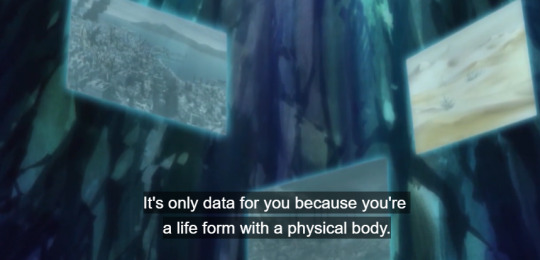

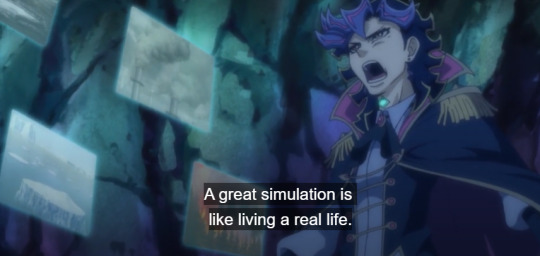
When Ai explains why he made his decisions based around lighting's simulation, he tells Playmaker that he can't dismiss or ignore the simulation or hope for the best the way Playmaker can because he is data, he thinks in simulations and processes.
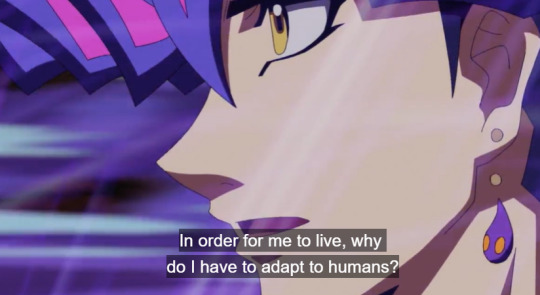
AI even admits to feeling the same feelings of self-preservation that Lightning did.
While Lightning may seem selfish, he's selfish in the fact that he's thinking of his own survival above all else. He's afraid of 1) his creators turning against him, and 2) his fellow Ignis turning against him.
To solve the first he decides to make a plan to wipe out his creators. To solve the second, he needs every ignis on his side when he goes to war. The first thing he does is destroy their safe haven and frame the humans for it so the Ignis are more inclined to take his side. He's so afraid of his fellow ignis turning against him he even completely reprograms one of them - a step he doesn't take with the others, he just imprisons Aqua. He probably thought having one more ally would make it more likely for the others to pick his side.
Every step he takes is a roundabout way of ensuring his survival and the other ignis- eve when he actually goes to war with the other ignis he intended on letting them survive. Though his definition of survival (fusing with Bohman) was different than theirs.
So Lightning seems to be working out of an inferiority complex, but what he's really afraid of is that his inferiority makes him expendable.
At that point you have to wonder, what does death mean exactly to a being who is otherwise immortal? Ignis won't die of age, they'll only die if they're captured and have their data stripped apart or corrupted. Kogami made an immortal being afraid to die.
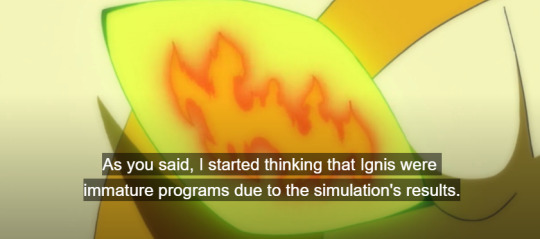
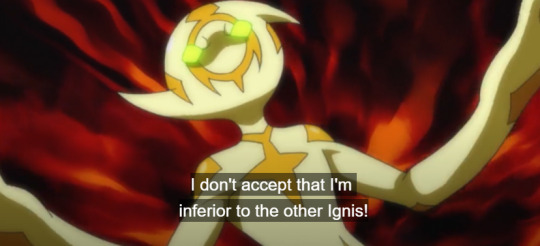
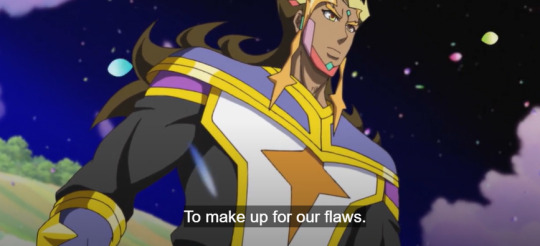
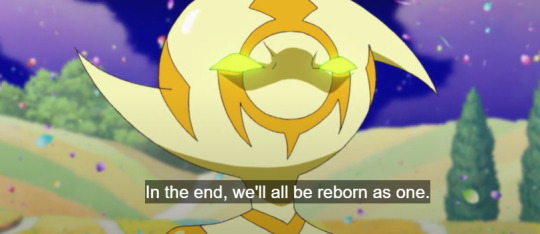
Some part of me thinks though that even after taking all these steps to preserve themselves, the simulations were so convincing that Lighting accepted their death as inevitable. Which is why they made Bohman, to find some way for them to keep on living afterwards.
After all AI are data, ad having their data saved in Bohman is still a form of living by Lightning's definition.
Ghost in The Shell
Bohman is the singularity. He's an AI designed by another AI to improve upon itself. Unlike the rest of the Ignis who were copied off of traumatized chidlren, Lightning basically made him from scratch.
Ghost in the Sell is a famous anime cyberpunk movie directed by Mamoru Oshii. The title comes from "Ghost in the Machine" a term originally used to describe and critique the mind existing alongside and separate from the body. Whereas in the movie the "Ghost" is the huma consciousness, while the "shell" is a cybernetic body.
The protagonist of Ghost in the Shell is Major Motoko Kusanagi, a human that is 99% cyborg at this point, a human brain residing in a completely mechanical body. The movie opens up with a hacker namd PUppet Master who is capable of "ghost-hacking" which is a form of hacking that completely modifies the victim's memories utterly convincing them of their false memories.
There's a famous scene in the movie where a man tells the police about his wife and daughter, only to be told that he's a bachelor who lives alone and he's never had a wife and daughter. Even after the truth is revealed to him, the fake memories are still there in his brain along with the correct ones. Technology is so advanced at this point that digital memories (hacked memories) are able to be manipulated, and seem more real than an analog reality.
Anyway, guess what happens to Bohman twice?
Bohman gets his memories completely rewritten twice. The first time he believes he's a person looking for his lost memories, the second time he thinks he's the real playmaker ripped out of his body, and playmaker is the copy. He's utterly convinced of these realities both time, because Bohman is entirely digital - and simulations are reality, and so simulated memories are just the same as real memories.
I think part of the reason that people find Bohman boring is because he's a little strange conceptually to wrap your head around, as an AI produced AI he's the farthest from behind human. If you use the ghost in the shell example I just gave you though - imagine being utterly convinced that you had a loving wife and daughter only to find out in a police interrogation room you're a single man living in a shitty apartment. imagine after the fact you still remember that they are real, even though you know they're not.
That's the weird space Bohman exists in for most of Season 2 when he's searching for himself. He's an AI designed by an AI so he can be rewritten at any time according to Lightning's whim until Lighting decides he's done cooking.
The Ignis at least interacted with the real world because they were copy pasted from traumatized children, but all Bohman is is data. So, why would he see absorbing human memories into himself and converting them into data as killing them? He is data after all, and he is alive. He has gone through the process of having his own memories rewritten multiple times, and he's fine with it b/c he's data.
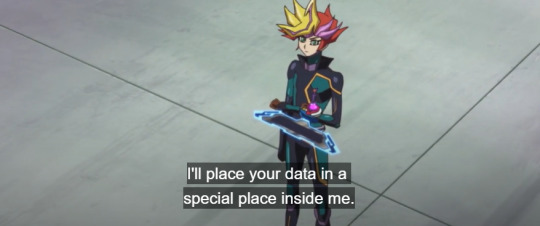

Nothing for Bohman is real, everything is programmed so of course he thinks saving other people as data is just fine. He even offers to do the same thing to Playmaker that was done to him.
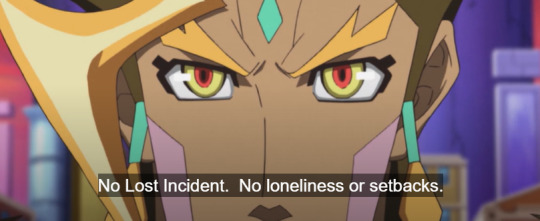

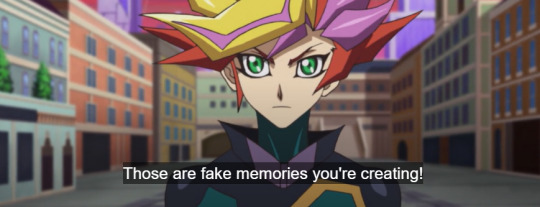
If Lightning is following the path of self-preservation however, Bohman is following his program to preserve everything in the world by merging with it.
His ideas also follow the idea of transhumanism: the theory that science and technology can help human beings develop beyod what is physically and mentally possible. That technology exists to blur the boundaries of humanity, and what humans are capable of.
Ghost in the Shell isn't just a work of cyberpunk, it's a transhumanist piece. Motoko Kusanagi is a character who has had so many of her human parts replaced with mechanical ones she even posits at one point it's possible for her to simply have been an android that was tricked into thinking it was human with false memories just like Bohman, and she has no real way of knowing for sure. The only biological part of her his her brain after all in a cold mechanical shell.
Bato, who represents the humanist perspective in this movie basically tells Motoko in that scenario it wouldn't matter if she was a machine. If everyone still treats her as human then what's the difference? His views are probably the closest to the humanist views that Playmaker represents in VRAINS.
Motoko Kusanagi meets her complete and total opposite, a ghost in the machine so to speak. The Puppet Master turns out to be an artificial intelligence that has become completely self-aware and is currently living in the network.
The Puppet Master much like Lightning, and later Bohman is gripping with the philosophical conundrum of mortality. In the final scene of the movie, The Puppet Master who wants to be more like all other biological matter on earth asks Motoko to fuse with him, so the two of them can reproduce and create something entirely new. The Puppet Master likens this to the way that biological beings reproduce.
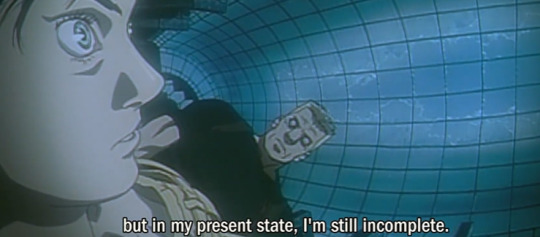



Bohman like The Puppetmaster thinks that merging will fix something that's incomplete inside of him because he's so disconnected from all the biological processes of life. Bohman doesn't have anything except for which Lightning already prepared for him or programmed into him. I mean imagine being a being that can have his memories reprogrammed on the net, that in itself is existentially horrifying. It's only natural he wouldn't feel connected to anything.
Motoko accepts the Puppetmaster's proposal. Playmaker rejects Bohman's proposal. I don't think there's a right answer here, because it's speculative fiction, it's a "What if?" for two different paths people can take in the future.
However, in Bohman's case I don't think he was truly doing what he wanted. Puppet Master became self aware and sought his own answers by breaking free from his programming. Bohman thought he was superior to the Ignis, but in the end he was just following what Lightning programmed him to do. He'd had his identity programmed and reprogrammed so many times, he didn't think of what he wanted until he was on the brink of defeat by playmaker and then it was too late.
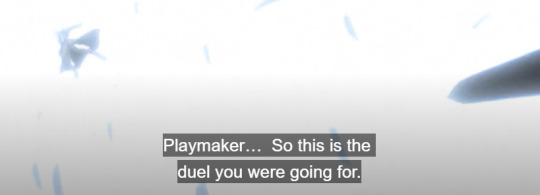
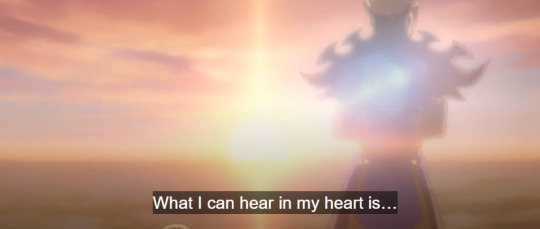
When Playmaker defeats him all he thinks about is time spent together with Haru, with the two of them as individuals. Something he can no longer do anymore now that he's absorbed Haru as data, and something that he misses.
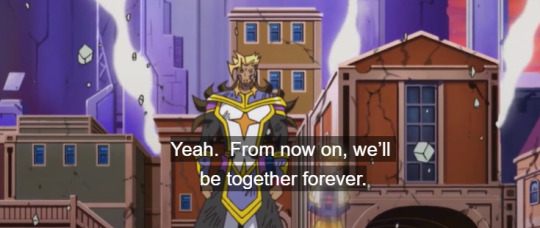
He's not even all that sad or horrified at the prospect of death as Lightning was, and he even finds solace in the thought of going to oblivion with Haru, because if he were to keep living it'd be without Haru. In other words the one genuine bond he made with someone else by spending time with them as an individual was more important than his objective of fusing with all of humanity - which he believed was also bonding with them.
This is really important too, because it sets up the Yusaku's rejection of fusing with Ai. Yusaku's reasoning has already been demonstrated to be the case with Bohman and Haru. Bohman was perfectly happy being two individuals, as long as he had a bond with his brother. When he ascended into a higher being he lost that. Ai and Yusaku might solve loneliness in a way by merging together into a higher being, they might even last forever that way, but they'd lose something too.


Once again the problem with AIs is that they think in absolutes. That's important to understanding Lightning, Bohman and even Ai's later actions. Lightning can't stand any percentage chance that he might die, so he kills the professor, destroys the ignis homeworld, pulls the trigger to start humanity himself, he even reprograms his own allies all to give himself some sense of control.
Bohman's entire existence is outside of his control. He's rewritten twice onscreen, probably more than that, and he thinks merging with humanity is the thing that will give him that control - by ascending into a higher being than humanity. However, the temporary bond Bohman had with his brother Haru, was actually what he valued the most all along. Moreso than the idea of fusing with humanity forever.
Even Motoko making the choice to go with the transhumanist option is something that's not portrayed as 100% the right choice. Ghost in the Shell has a sequel that portrays the depression and isolation of Bato, the Major's closest friend and attachment to her humanity after she made the decision to fuse together with Puppet Master. In that case, just like Playmaker said to Ai, even if she ascended to a higher form, and even if she might last forever now on the network, something precious was lost. Motoko may exist somewhere on the netowrk but for Batoto his friend is gone.
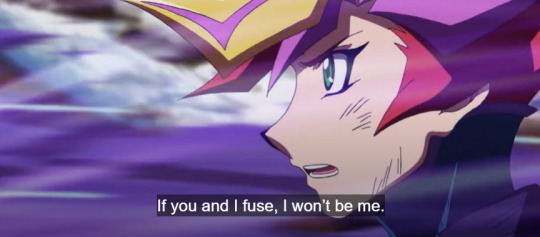
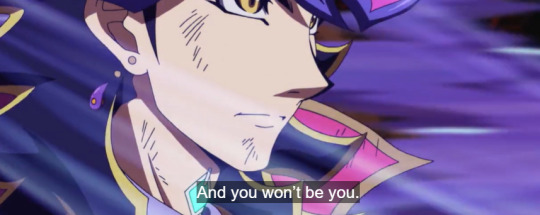
Ai exhibits the same flaw as the previous two, he ca only think in absolutes, he can't stand even a 1% chance that Playmaker might choose to sacrifice himself for Ai and die, so he decides to take the choice entirely out of Playmaker's hands. However, no matter what Ai would have lost Playmaker one day, because all bonds are temporary. It's just Ai wanted to have that sense of control, so he chose to self-destruct and take that agency and free choice away from Playmaker.
It's a tragedy that repeats three times. Ai too just like Bohman, spends his last moments thinking about what was most precious to him was the bond he formed with playmaker, as temporary as it was. A tragedy that arises from the inability of the Ais to break away from the way they're programmed to think in simulations and data, even when they're shown to be capable of forming bonds based on empathy with others.
All three of them add something to the themes of artificial intelligence, and transhumanism that are in play at Vrains and none of them are boring because they all contribute to the whole.
Which is why everyone needs to stop being mean to Bohman right now, or else I'm going to make an even longer essay post defending him.
55 notes
·
View notes
Text
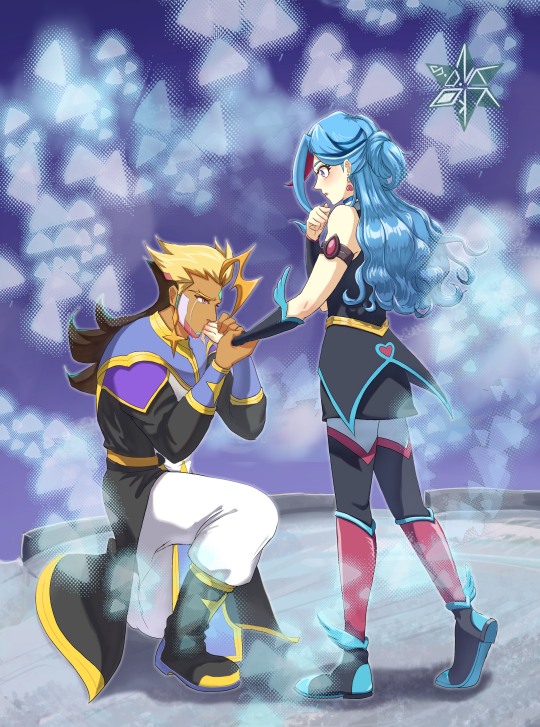
A scene from @merryfortune's Damselfly fic for YGO Rare Pair Mini Bang 23-24. Check out the story here, it's really freaking cute!
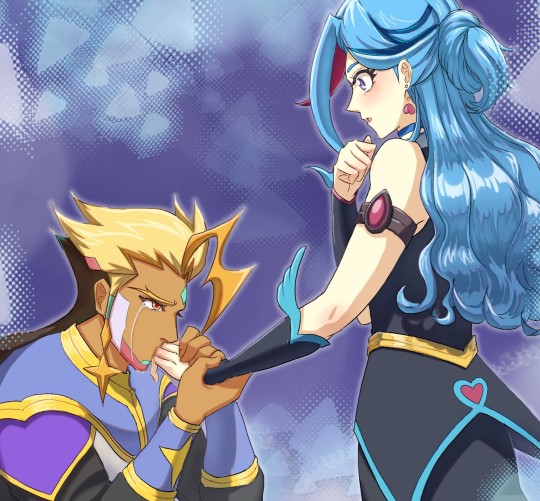
#first time drawing either of them#thanks for the fun challenge!#art by neeko#yugioh#yugioh vrains#bohman#aoi zaizen#skye zaizen#damselflyshipping#vrains#blue maiden
28 notes
·
View notes
Text
Lightning gets a "World's Okayest Dad" mug from Bohman and Harlin
8 notes
·
View notes
Text

It’s Yaoi Shoulders Man! And that is this guy!

5 notes
·
View notes
Note
What do you think of bohman? He seems pretty honorable and ‘human’
Try as I might, I have never managed to have much of an opinion on or anything to really say about Bohman. The fact that he's sometimes honorable and disagrees with Lightning at times is definitely notable but not really all that interesting to me. To be honest, I've always had many more opinions on his brother, Haru, and that brotherhood. And Windy and Lightning for that matter. Bohman meanwhile is just. Kind of a placeholder? He felt like a different person every time we saw him so I never got all that invested in him. I perfectly understand why others are invested in him though.
4 notes
·
View notes
Text
time for some gunshots to keep the rent down. here's who in lightning's faction can and does say the word faggot.
jin
personally i'm of the opinion jin should be allowed to do anything. some of you probably already know that i passionately hc jin as a closeted trans girl, but tbh even in the bizarre reality where jin was cishet, i would give her a pass. vrains gave her nothing, you guys.
as far as if she does say it, lightning muted her because she wouldn't stop muttering it and lightning got annoyed.
hal
i don't have a ton of thoughts on whether or not hal is queer, but regardless if he is, he absolutely says it. you've heard of queer- or autistic-coded? hal is fortnite-coded. don't you dare boo me, i'm right.
bit & boot
they definitely can't and they definitely do, but they have no idea what it means. windy taught it to them after lightning pissed him off one day and here we are. they may well think it's a type of fish.
lightning
queerness isn't a competition, but if it were, lightning would be tied for faggiest faggot among the ignis with ai. doesn't really say it or even give much indication they know what it means all the way until s3 when ai finds the message they left him and it starts with "hey, faggot."
windy
here's the thing - and i probably could've said this for lightning, but, whatever. i think the idea that the ignis are automatically the same (binary) gender as their partners is really boring and stupid. the ignis are sexless AI and therefore have no gender except whatever they choose, meaning all the ignis are trans. that's just the rule.
that said, windy doesn't get to say it anymore because he only ever uses it derogatorily. does it stop him? absolutely not. revolver's a faggot. flame's a faggot. soulburner's a faggot. having partners is for FAGGOTS. (he's right, but, you know.)
bohman
he doesn't say it and has no idea what it means. does not stop lightning from secretly wishing he would call them one.
6 notes
·
View notes
Text
Yu-gi-oh Master Duel Showdown Round 1
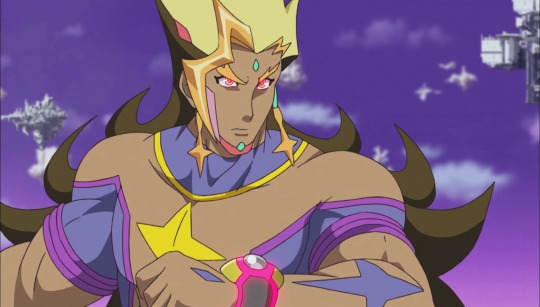
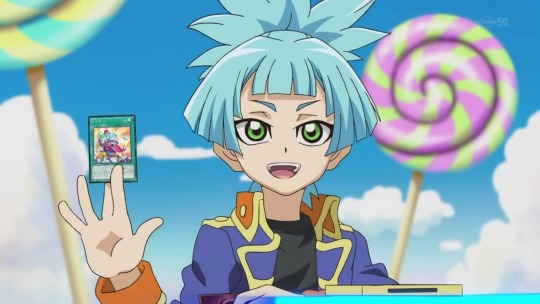
Bohman (Vrains) vs Sora Perse (Arc-V)
Hydradrives vs Frightfurs!
3 notes
·
View notes
Photo
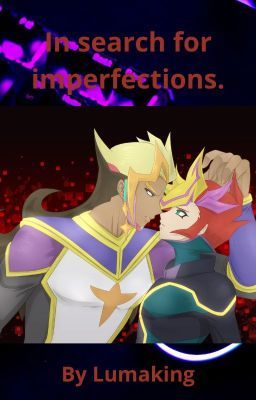
In search for imperfections. - 1. (on Wattpad) https://www.wattpad.com/1342353542-in-search-for-imperfections-1?utm_source=web&utm_medium=tumblr&utm_content=share_reading&wp_uname=Lumaking7&wp_originator=Cp6jQ3o6XoNqq9mStaQFw8DQjHkd1tteOGdFO22%2FqTbp%2FQPQEzPxUGmIKcfaWbcie2%2FNoS2%2FVnCCOGyPjE20vZ5PC5dMMrvgRA0gJ8POJ2xByYRpfz34HXOx2uoFNSHN The Highschooler Yusaku Fujiki is thrown for a loop when his archnemesis Bohman suddenly gives him a proposal. A proposal he cannot resist. At their final duel in Mirror Link Vrains, as his avatar Playmaker, Yusaku sacrifices himself in favor of Ai. His partner and Ignis. What will happen to him now that he is trapped in the virtual world with the evolving A. I Bohman? Not to mention when that said A. I show a certain interest in him and value him over his own perfection. A what-if moment with Playmaker and Bohman. What-if Playmaker surrendered the final duel against Bohman because of Ai. What would then happen? Well, I am here to answer that.
#alternateuniverse#angstwithhappyending#artificialintelligence#bohman#damselindistress#deals#enemiestolovers#eventualromance#fanfiction#hurt-comfort#limasyndrome#linkvrains#mindcontrol#self-sacrifice#unrequitedlove#virtualreality#vrains#whatif#yugioh#yusakufujiki#i#fan-fiktion#books#wattpad#amreading
2 notes
·
View notes
Text
Hey, is Bohman anyone’s favorite VRAINS villain? And if he is, why? This isn’t facetious, I really wanna know about that corner of the fandom!
0 notes
Text

Louise Bourgeois, Lars Bohman Gallery
#art#arte#contemporary art#arte contemporanea#installation art#installation#Louise Bourgeois#Bourgeois#Lars Bohman Gallery#mine.cd
226 notes
·
View notes
Text
We have GOT to talk about the insane generational violence in the Kogami family. Kogami senior creates Lighting, who kills him, Lighting creates Bohman, who kills him. Revolver is trying to destroy any and everyone his father ever made, only to lock himself in mutually assured destruction, the sins of the father, the mythical succession cycle, etc, etc. You ever have a family so messed up it gives itself shakespearean levels of literary motifs
#if you look very closely vrains is just a soap opera style tragedy about This One Family That Keeps Screwing Things Up For Everyone#vrains spoilers#spk watches vrains#yugioh#vrains#yugioh vrains#ygo vrains#poetic. brilliant. beautiful.#ryoken kogami#lightning vrains#bohman vrains
60 notes
·
View notes
Text
ngl the fight club book was a lot more...real? than the movie? like more grounded. which honestly made it feel MORE "unhinged" or whatever fincher was going for. like it's the difference of something trying to be weird (the movie) versus something just naturally being weird (the book). like people on tiktok forcing themselves to be weird by dancing when they get their food while people on here have actually stolen bones.
#also the narrators actor in the film. don't like him.#brad pitt wouldn't have been my choice for tyler either though he does play a fun one#kinda manic pixie dream girl ish tho#whereas tyler in the book was like that One Guy you know who's like a jack of all trades and he talks fast and he's either super#conservative or a very devout leftist anarchist#also helena bohman carter. horrible choice for marla. horrible.
23 notes
·
View notes
Text
New Hydradrive Monster
Hydradrive Patch:
Level 1
Earth Cyberse
Attack: 300. Defense: 400.
Effect: If a Hydradrive Monster you control would be destroyed by a card effect: Discard this card from your hand and negate that effect, if you deal 500 points to your opponent. You can banish this card from your graveyard: Set 1 “Property” Trap or Spell card from your deck, graveyard or banishment zone. You can play the set card the turn you activate this effect.
Design: The monster was that of a brown reptilian-like creature as the entire body was shorter compared to the rest of the Hydradrives. It had sharp claws that reached towards its back, as the tail was in the shape of a sword. It had blue fur around its stomach and head, however at the top of its head was the Hydradrive Emblem.
8 notes
·
View notes
Photo

Duesenberg J Roadster by Bohman & Schwartz 1935. - source Classic Cars & Trucks.
114 notes
·
View notes
Text
Live Fanboy Rewatch Reaction
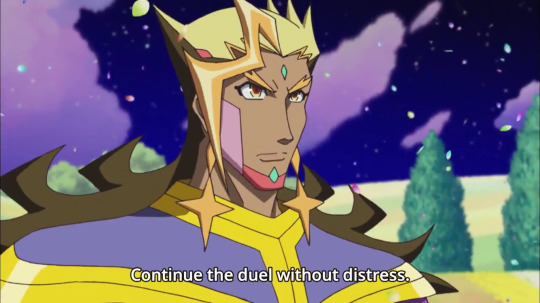

Me for like half a second: Oh, is this Rev actually respecting an AI for once?
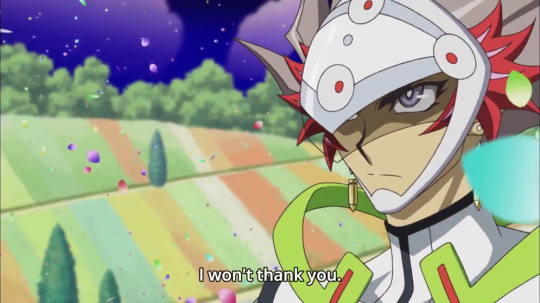

You know what? Fair enough. If Bohman wanted any thanks for that, he should've done it before you ended your turn.
#yugioh#ygo#yugioh vrains#ygo vrains#vrains#revolver#revolver vrains#ryoken kogami#bohman#bohman vrains#seriously I laughed so hard at this#I forgot he said this
9 notes
·
View notes
Text
bohman: can you stop going to the middle of link vrains and dropping hal off
lightning: why.
bohman: because you keep going further out and it gets harder to find him
1 note
·
View note